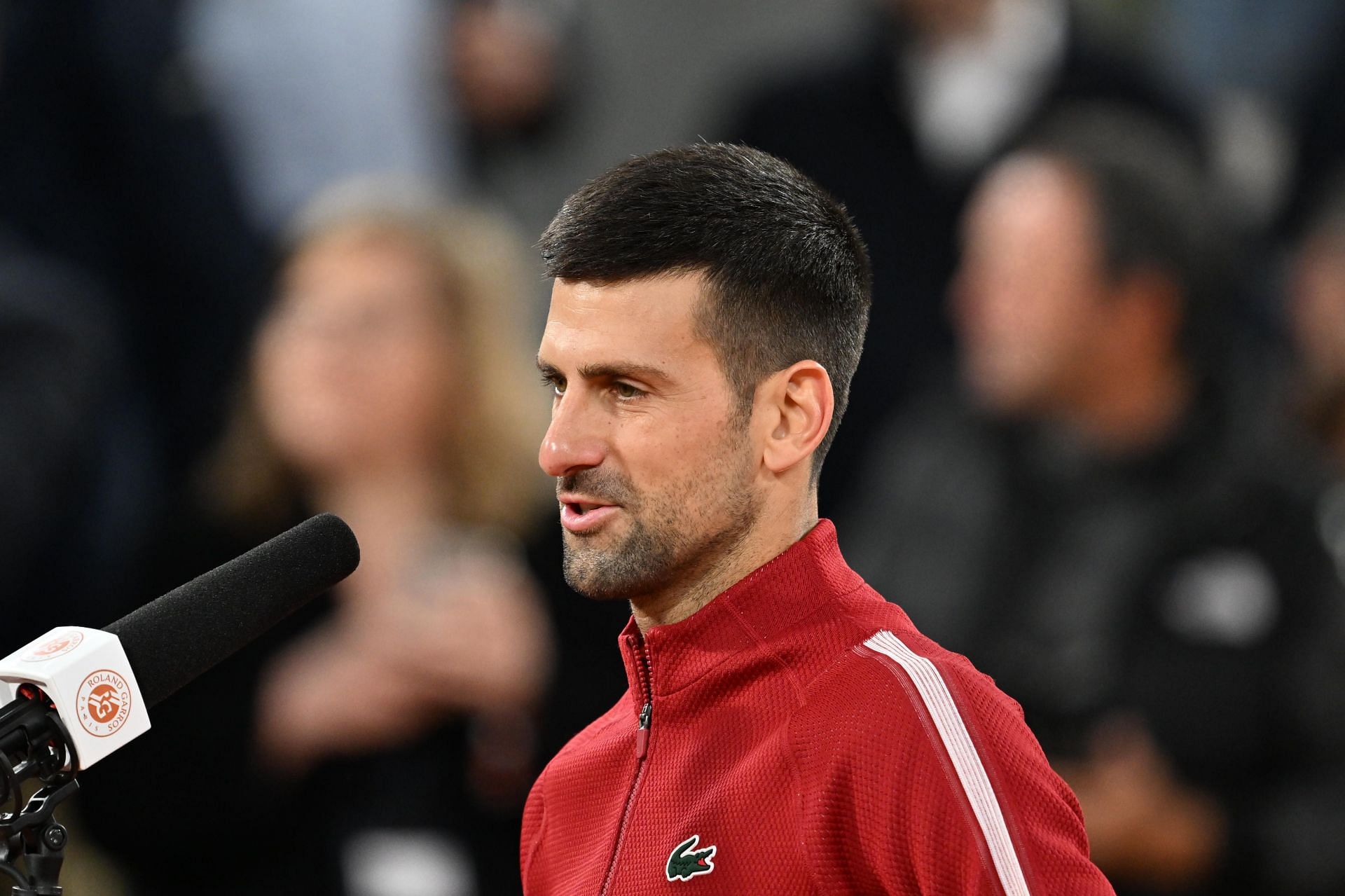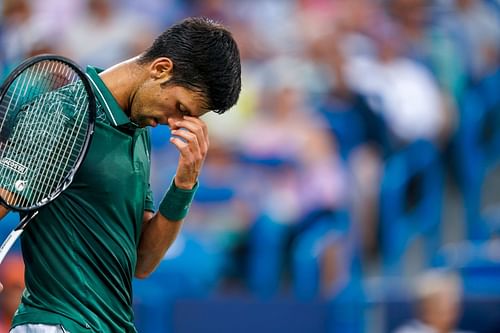
Novak Djokovic opens up on painful childhood in war-torn Serbia; recalls queuing up with his grandfather at 5 am for bread to feed their entire family
Novak Djokovic has recalled how he, along with his grandfather, had to wait in line for bread in the early hours of the morning in his childhood days. Djokovic grew up in Serbia at a time when the Balkan nation was devastated by war and economic sanctions.
The 24-time Major winner's childhood was a tense one, primarily due to the living conditions in Serbia at the time. Serbia had become a geopolitical entity of its own after Yugoslavia was broken up into smaller territories. In the 1990s, war devastated the Balkan region, and Serbia was one of multiple nations that felt its tragic impact. Djokovic, born in the late 1980s, grew up in this unfortunate environment.
Recently, in an interview with La Nacion, the former World No. 1 turned back the pages of history to reveal the extent of the devastation that Serbia and its neighboring areas had to endure, particularly over the last century.
"Serbia is a very old nation. First of all, we have to clarify that, because we have a very rich history and tradition. But in recent history, the last hundred years—World War I, World War II and especially now, in the last 30 years–we suffered a lot, not only us, but also Croatia and Bosnia."
He added:
"Unfortunately, that country that used to be one country, Yugoslavia, broke up in the 1990s, and I was born in 1987, like Messi, so I don’t really remember what that country was like, because I was very young. I remember the second part of the 1990s and our country was under sanctions and an embargo, meaning we couldn’t export or import anything."
The 37-year-old went on to share one of his own experiences growing up in difficult circumstances. It revolved around how he and his grandfather would have to queue up for bread at 5 AM regularly to ensure that his family, consisting of his grandparents, parents, cousins, and siblings, didn't go hungry. Djokovic also remembered how the whole family had to accommodate themselves in a small apartment.
"I remember standing in line with my grandfather at 5 in the morning to get bread to feed our whole family—my grandfather, my aunt, my uncle, my cousins, my siblings, my parents and I. We all lived together in a small apartment because we had no other choice and those are the things that became an integral part of my character, of who I am today as a person,"
Previously, the Serb had taken a prominent journalist in person to the bomb shelter, where he and his family had to take refuge when bombings and airstrikes were everyday affairs.
"People would just hide in corners" - Novak Djokovic on the trauma he, his family, and others experienced during the 1999 NATO bombings

In a 2020 interview with renowned American journalist Graham Bensinger, Novak Djokovic explained how several people in his Belgrade locality in 1999 had to hide in a building with a bomb shelter during the 1999 NATO bombings that laid waste to the Balkan region. The Serb, along with Bensinger, had traveled together to the Serbian capital to film the detailed interview.
"It's crazy when you think about the amount of people that would come here and hide. It's definitely the same as it was 20 years ago. The whole building, with [people from] 50 apartments, will be here. People would just hide in corners and try to find a safe space."
The Serb continues to maintain that such harrowing experiences during his childhood ultimately made him tougher and more resilient in the face of adversity and had a vital role to play in shaping his astoundingly successful tennis career.
The former World No. 1 is currently participating in the Six Kings Slam exhibition event in Riyadh, Saudi Arabia. The Serb lost to current World No. 1 Jannik Sinner in the semifinals, and his next outing will see him face great rival Rafael Nadal for third place in the tournament.